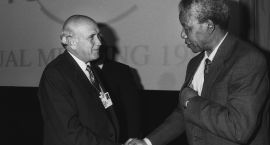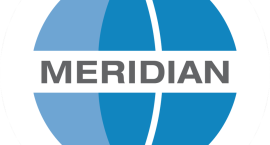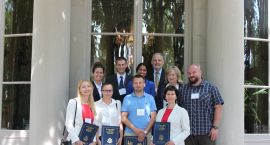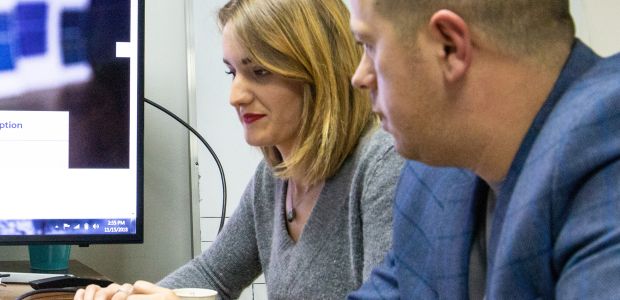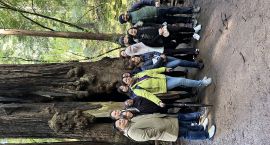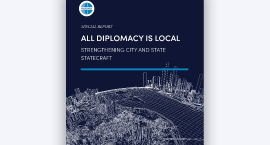Corruption, an abuse of power for private gain, threatens democracy, depletes national wealth, and undermines public trust. It’s a global problem plaguing even the youngest republics, like Kosovo. The U.S. Department of State reports that Kosovo suffers from endemic government corruption and one of the Kosovo’s think tanks reports its judicial system is considered among the most corrupt.
One way to attack the problem is through public diplomacy. In 2018, the Carnegie Endowment for International Peace recommended the State Department sponsor anticorruption themed International Visitor Leadership Program (IVLP) visits. In fact, it’s doing just that. In 2017 and 2018, the State Department sponsored two such Kosovo IVLP visits focused on the rule of law. The visitors included three government prosecutors, and two NGO leaders from the Kosovo Law Institute (KLI).
Recently, Lee Norrgard, a Meridian program officer, who had programmed several of these projects, traveled to Kosovo seeking to learn participants’ takeaways were from these IVLP visits. Each of the five interviewed commented on the remarkable people they met on their U.S. journey including judges, law professors, attorneys general, lawyers, journalists, NGOs leaders, and investigative agencies.
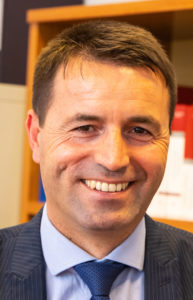
The three prosecutors, each of whom litigates corruption cases, found many practices and procedures in the U.S. Judicial System that could serve as models for implementation in Kosovo. What most impressed prosecutor Arben Ismajli was the transparency in the American judicial system, leading to the public’s trust. His IVLP takeaway was to become an advocate for such transparency in Kosovo. Public trust in his country’s fight against corruption is minimal, which he attributes, in part, to Kosovo’s judges. To illustrate, he cited one of his cases where a contractor submitted fake invoices in a 210,000 Euro government contract. The perpetrator was investigated charged, confessed, and named his government accomplices. Inexplicably, when it came to trial, the judge dismissed the charges. Ismajli appealed the case to the country’s Supreme Court, which ruled that the lower court had erred. Under Kosovo law, he couldn’t relitigate the case. However, using an approach he learned during his IVLP visit, he publicized the Supreme Court’s ruling in the news media, highlighting the presence of corruption. For him, this was a way to build public trust.
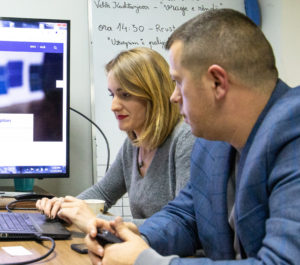
Like Ismajli, the Kosovo Law Institute’s Betim Musliu and Hyrije Mehmeti, are advocates for transparency and accountability. Since 2009, this NGO has monitored Kosovo’s courts, particularly focusing on government corruption. A major takeaway for them sprang from their meetings in Washington and New York. With their 60 court researchers they built a comprehensive database of corruption cases including the accused, the different prosecutors, judges and outcomes. In March, KLI used this database to generate a report that summarized 850 hearings, involving 777 individuals charged with corruption in 2018. Also included were the case summaries of almost 30 high profile individuals (ministers, mayors, members of parliament, etc.) charged with corruption, and the number of cases won, lost or pending handled by 34 special prosecutors. A second takeaway came from witnessing the transparencey of U.S. NGOs. Reflecting on that observation, the two decided that KLI had to be fully transparent and revamped their Albanian and English website to report its donors, finances, audits, programs and activities.
A takeaway for both the prosecutors and NGO leaders on these IVLP projects was finding common cause in the fight against corruption. One prosecutor remarked, NGOs are not just saying things, there is substance behind their words. The five remain in contact today.
The International Visitor Leadership Program is sponsored by the U.S. Department of State with funding provided by the U.S. Government and supported in its implementation by Meridian International Center.









